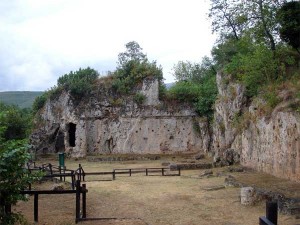
History is reminiscent of the nations and leaders grave challenges. It also reminds that nations and leaders have exceeded their limits and failed. If the power,ambition,and splendor are disrupted then domains are lost.
The challenges of our days are historic and global,indicating the difficulties of the economic crisis and the absence of a leader who can save the existing situation. The question arises:Should the leader to learn from the successes and failures of the past?
According to the experts there are at least two most important characteristics of leadership:first,anyone who accomplishes something noble in their endeavors often disregard the conventional thinking of their time;second,the factors of a successful leader have not changed since ancient times. These are:enthusiasm of the followers of leaders vision;inspiration through illustration;good judgments of duty and responsibility to those who trust and depend on person in charge;the capability to see a problem and the competence to fix it;understanding people’s limits and knowing when to drive hard and when to ease up on both subordinates and opponents.
Ancient Greeks taught that nothing is more important than good guidance for the harmonious functioning of the society and nothing is worse than to be deficient of it. Aristotle wrote in the 4th cent B.C. that Greeks were the best governed of all people because they had no national or central government to destroy their individuality or drain their recourses.
What can be learned from the leaders and thinkers of the ancient world? Three key points can emerge to command attention:
First,character is the essential upon which leadership is build. The real challenge of leadership as can be seen with Alexander the Great,Xenophon or Caesar is to maintain character in the face of success. A leader who has character is one who is transparent in his actions,who had to be above even the suspicion or appearance of impropriety or wrongdoing.
Second,the willingness to consider other opinions and point-of-view shows strengths and confidence,not weakness. Socrates one of the oldest advisers on leadership believed asking the right question was more important than proposing the right answers. He argued that person in charge must be trained to question and investigate as they lead. They must real wisdom,lie in understanding and accepting the fact that you do not have all answers and that in long run you cannot trick,threaten,or torment people into thinking that you do. Plato wrote that extraordinary leaders-“philosopher kings” were born with this quality,which sets them apart from others.
Third,success of a leader is not based exclusively on the skills and charisma of just one individual but the efforts and support of the people.
A good leader cultivates an environment that encourages subordinates to express their ideas,viewpoints,and opinions on solving problems.
We live in time of serious economic crisis since the Great Depression in 1930 and good leadership in worldwide politics and economy requires effective leadership. Historical past can teach many things,it had leaders who were very successful,capable to resolve problems and direct their societies that had problems similar to our days. Today’s leaders seek the same goals that their predecessors-ancient counterparts,they need prestige,achievement recognition and prosperity. They have the same motivation-power,ambition,and glory.
In the style of Plutarch we can make parallels between ancient and modern leaders and their backgrounds that helped them to become famous in centuries. If there is one common thing that ties successful leaders together is their astounding capacity for getting things done.
Photo:The ruins of Aristotle’s School have been found only 2 kilometers away from the contemporary Naoussa,at the district of Isvoria. Source:Youtube.com,Ava Babili’s photostream.